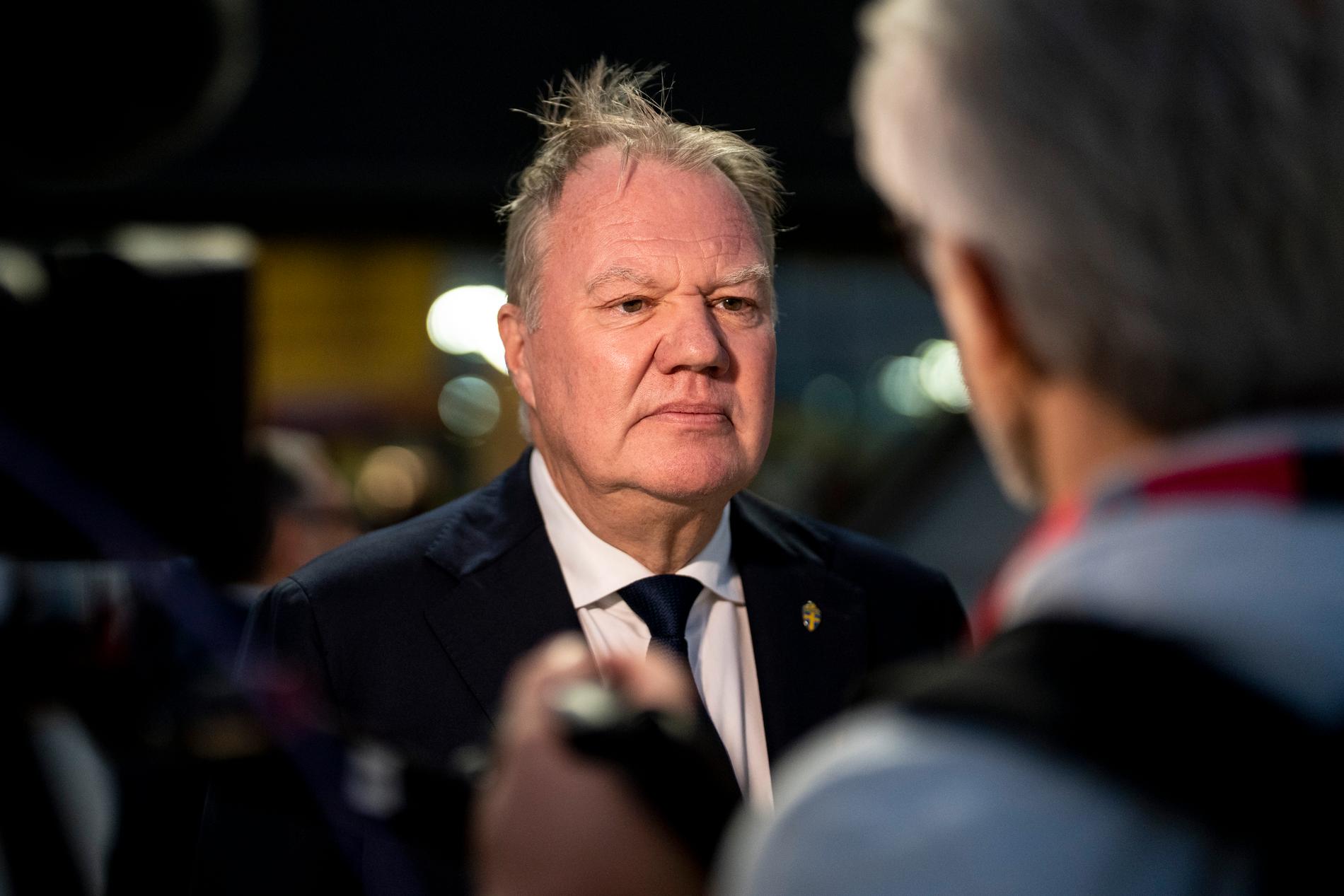Another day for the Swedish Football Association to make its way through the era of real politics.
Politics remains in power, regardless of the form of power, on the basis that it will benefit you in the future.
He never said “Olov Palm”.
You feel like a social democrat.
On the fourth day of the World Cup in Qatar, as Swedish football wanted to impress through quiet diplomacy, Karl-Erik Nilsson, a member of the old municipal council of Imbabuda, who had become a major player in European football, had enough. After vacillating here and there, questioning whether Gianni Infantino really deserved Sweden’s support in the upcoming FIFA elections, he now says he would have been an easy choice at the moment. Trust is corrupted, one must understand.
Gianni Infantino is the head of an organization plagued by extreme corruption, who has been traveling privately around Africa and the Middle East to gain votes and support, and who has so oversaw the organization of the World Cup that he moved to Qatar. He is in cahoots with Saudi Arabia, which remains the proud owner of Russia’s Medal of Friendship on which he declined to comment, and has spent the World Cup looking like an unfortunate mixture of detached autocrat and callous cynic. He has stopped taking positions for human rights or sexual minorities, which are football’s most powerful forces in Europe against him.
What is there to think about?
So much so, it is as if you are listening to the main representatives of Swedish football.

It’s not particularly hard to understand why Carl Eric Nilsson would hesitate, be wary, or wait and see. It is about realpolitik, recognizing that it is better to hold on to power now that it is still there. Infantino will be FIFA President in the coming years as well. For Swedish football there is a payoff in maintaining his integrity and governance. You can think what you want about it, it’s basically another of FIFA’s many structural weaknesses. The union is designed to fight corruption, from the seat in Switzerland to the economic dependence of small states, or the single federal vote system.
In this world Sweden is trying to sail forward, first to a position, then to an opportunity for change.
The problem is that quiet diplomacy does not work well when all of Europe is screaming, and realpolitik looks bad when the situation is acute. Of course, you can steer Sweden effectively and leniently, through total collapse, but you will also be judged for it.
Has anyone seen my spine?
In the pose or curl below the infantino-sculpted gallows, I see two things:
The first is mostly further evidence of an approach that has gone out of date: Swedish football management lives in a world where consensus is assumed, an idea inherited from the social democracy “Well, we’re all pretty much in agreement, so let’s talk until the most sensible option”. He may be likable, but in this age of polarization, no one asks for that kind of leadership.
The second is the sign of the times.
The Swedish government turns a blind eye to Erdogan’s bombs in order to be rewarded with a place in NATO, and the liberals beat themselves up to be able to rule with a party they just called brown and racist. Has anyone seen my spine? I last saw him in the closet.

It is entirely possible that Sweden will gain more in the short term than they have lost by silently nodding their approval to the losing winner Gianni Infantino and the FIFA in place. But this is not the time for consensus and realpolitik, not in this world of football.
Which side does Swedish football want to stand on?
The Superliga is defying UEFA, for better (actually) and worse. FIFA is going around with anti-democratic regimes and TV companies to fill their coffers. The entire sport as we know it is so endangered it may already be too late to try and save it.
Somewhere down the road, I hope we can look back on the early 2000s as a great time when football first caught fire and then re-emerged as something we sympathize with. Maybe I think so, maybe not. Maybe there’s only one way out from here.
Politics is about desire, Palm said.
Regardless, history will render its verdict. So which side does Swedish football want to stand on?
